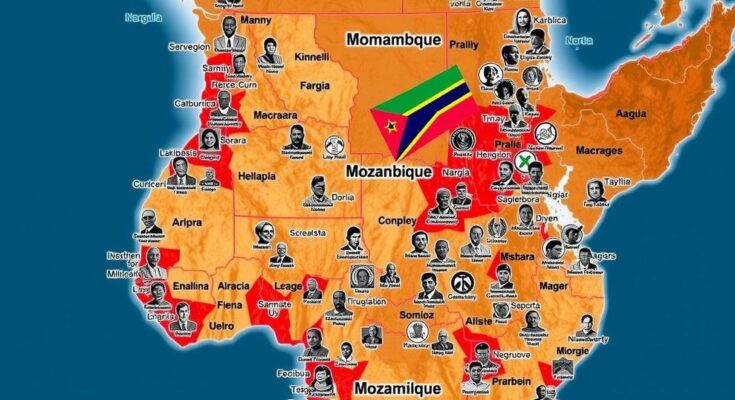Mozambique is home to 25,000 refugees and 716,878 internally displaced individuals due to violence and climate crises, with UNHCR leading efforts for their support. The recent returns of 610,981 individuals face significant challenges, as many lack essential services. UNHCR emphasizes safe, dignified returns and the need for their integration into national systems and climate responses. Development and peace-building partnerships are being strengthened to support these populations.
Mozambique is currently home to approximately 25,000 refugees and asylum seekers, alongside 716,878 internally displaced persons (IDPs), driven primarily by violence from non-state armed groups and the severe repercussions of climate change. This country ranks among the most vulnerable globally, having been severely impacted by consecutive Tropical Cyclones, notably Cyclone Freddy in early 2023, which devastated infrastructure and displaced around 184,000 individuals.
The United Nations High Commissioner for Refugees (UNHCR) and its partners actively collaborate with various stakeholders, including governmental bodies, to deliver essential protection services and support for refugees, asylum seekers, IDPs, and their host communities. Recent efforts have yielded a significant return of 610,981 individuals to their regions, many of whom face challenging living conditions devoid of adequate services.
UNHCR underscores the importance of ensuring that all return movements for refugees and IDPs are conducted safely, voluntarily, and with dignity. Moreover, the agency emphasizes the need for the integration of these populations into national service frameworks, alongside inclusion in climate-related planning and response initiatives. Concurrently, UNHCR is enhancing its partnerships with entities involved in development and peace-building to foster the inclusion of displaced and returnee populations through expanded programming.
The operational challenges facing Mozambique are exacerbated by both social instability and climate adversities, compelling significant population displacements. Recent natural disasters, particularly tropical cyclones, have not only inflicted immediate humanitarian crises but have also resulted in long-term disruptions to infrastructure and livelihoods. The extensive internal displacement caused by conflict and climate impact necessitates comprehensive support mechanisms to address the needs of vulnerable populations, while also promoting sustainable and resilient community development.
In conclusion, Mozambique’s humanitarian landscape reveals significant challenges faced by refugees and IDPs due to violence and climate crises. UNHCR’s ongoing efforts to ensure safe and dignified returns, combined with advocacy for the inclusion of these groups in national frameworks, highlight a commitment to addressing their needs. The coordinated approach involving humanitarian, developmental, and peace-building initiatives is vital for fostering resilience within the affected communities.
Original Source: reliefweb.int




